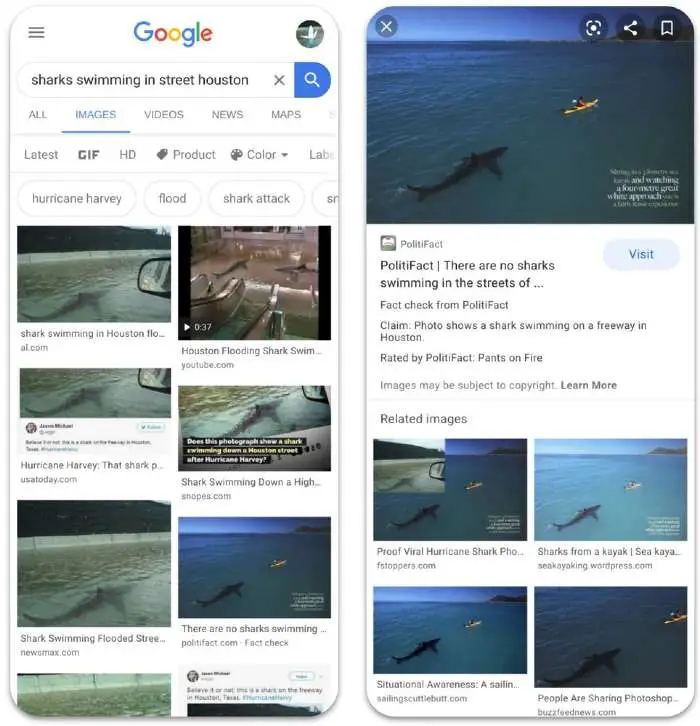Google wants to curb the misinformation spreading on its search engine in the form of images. The search giant will play an active role in fact-checking its Image search results. The announcement is of significant importance given an increase in misinformation spreading through false and misleading images.

Google to fact-check viral images
For example, we continue to notice an influx of text-based misinformation masquerading as images going viral on social media and in the form of blog articles, and eventually, these images somehow end up getting indexed in Google search results.
As a result, the onus is now on the search giant Google to stop the spread of such viral and misleading campaigns. Google has to prevent spammers and propaganda actors from both abusing and misusing its search platform.
“We are surfacing fact check information in Google Images globally to help people navigate these issues and make more informed judgments about what they see on the web. This builds on the fact check features in Search and News, which people come across billions of times per year,” said Harris Cohen, Group Product Manager of Google Search.
Google has acknowledged the significance of visual media such as photos and videos in understanding the state of current affairs across channels. But Google says the power of visual media has its pitfalls, and it is often difficult to figure out the origin, authenticity, or context of an image, something Google is now trying to address.
The way forward…
If you stumble upon a controversial Google Search image result, you may notice a new “Fact Check” label under the thumbnail image results. Upon expanding these results to view the Google image in a larger format, Google will show a summary of the fact check that appears on the underlying web page.
According to Google, these labels are likely to appear both for fact-check articles about specific images and for fact-check articles that incorporate an image in the story. Google is currently working with independent, authoritative sources such as ClaimReview to fact-check across Seach, Google News, and YouTube.
Meanwhile, did you know Google discovers more than 25 billion spammy web pages every day?